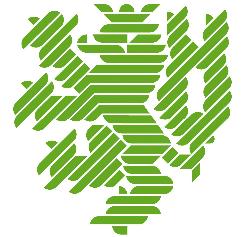Ein einfaches Kompartment-Modell zur Beschreibung von Revolutionen am Beispiel des Arabischen Frühlings
Bachelorarbeit Mathematik
Betreuung
Beschreibung
Schlüsselwörter
Arabischer Frühling, ODE, compartment modell
Literatur:
- J.B. Alterman,
The Revolution Will Not Be Tweeted,
The Washington Quarterly 34 (2011), 103-116.
- M.P. Atkinson, A. Gutfraind, M. Kress.
When do armed revolts succeed: lessons from Lanchester theory,
Journal of the Operational Research Society 63 (2011), 1363-1373.
- G. Blight, S. Pulham, P. Torpey,
Arab spring: an interactive timeline of Middle East protests,
The Guardian, January 2012.
- D. Centola, R. Willer, M. Macy.
The Emperor's Dilemma: A Computational Model of Self-Enforcing Norms,
American Journal of Sociology, 110 (2005), 1009-1040.
- A. Dunn,
Unplugging a Nation: State Media Strategy During Egypt's January 25 Uprising,
Fletcher Forum of World Affairs, 35 (2011), 15-24.
- A. Hofheinz,
The Internet in the Arab World: Playground for Political Liberalization,
International Politics and Society 3 (2005), 78-96.
- P.N. Howard, A. Duffy, D. Freelon, M. Hussain, W. Mari, M. Mazaid,
Opening Closed Regimes: What
Was the Role of Social Media During the Arab Spring?,
Project on Information Technology & Political
Islam, Research Memo. Seattle, University of Washington, 2011.
- M. Kress,
Modelling Armed Conflicts,
Science 336 (2012), 865-869.
- J.C. Lang, H. De Sterck,
The Arab Spring: A simple compartmental model for the dynamics of a revolution,
Mathematical Social Sciences 69 (2014), 12-21.
- G. Lotan, E. Graeff, M. Ananny, D. Gaffney, I. Pearce, D. Boyd,
The Revolutions Were Tweeted:
Information Flows during the 2011 Tunisian and Egyptian Revolutions
International Journal of Communications 5 (2011), 1375-1405.
- J. Rickert,
Agent Based Models and RNetLogo
- A. Said,
The Paradox of Transition to "Democracy" under Military Rule,
Social Research: An International Quarterly 79 (2012), 397-434.
- W. Saletan,
Arab Spring Internet revolutions:
Are Twitter and Facebook toppling dictators?, Slate,
2011.
- E. Stepanova,
The Role of Information Communication Technologies in the "Arab Spring":
Implications Beyond the Region PONSARS Eurasia Policy Memo, 2011.
- B. Voorhees,
Birth-Death Models of Information Spread in Structured Populationsm,
ISCS 2014: Interdisciplinary Symposium on Complex Systems
Emergence, Complexity and Computation 14 (2015), 67-76.
- U. Wilensky,
NetLogo Models Library:
Rebellion
- X. Zhuo, B. Wellman, and J. Yu,
Egypt: The First Internet Revolt?,
Peace Magazine 27 (2011), 6-10.
Links:



